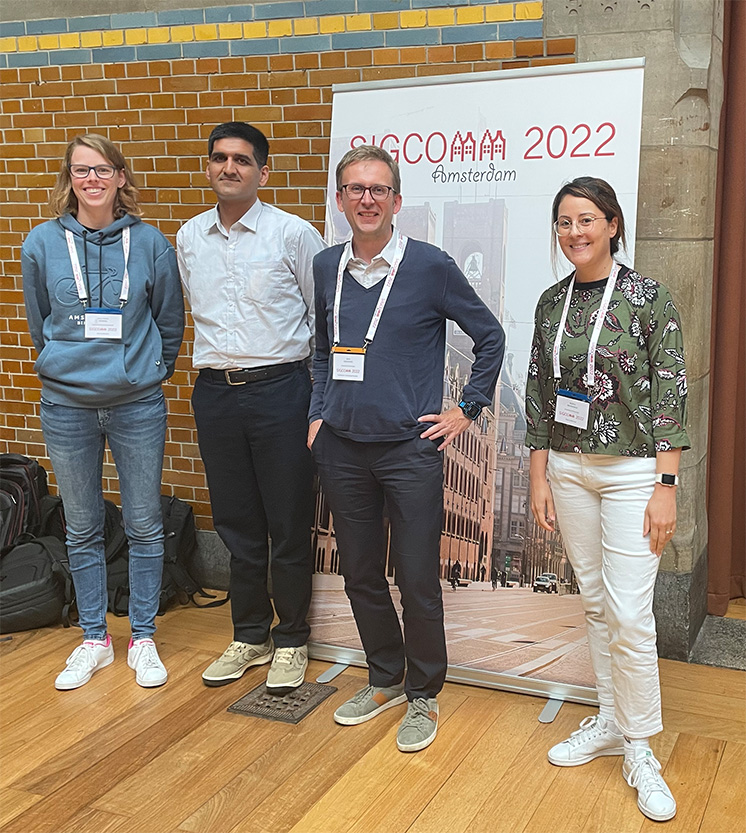The CogniGron Research Center and the Distributed Systems Research Groups of TU Ilmenau and University of Groningen have organized a workshop to discuss research findings, initiatives, and challenges for Sustainability in Distributed and Networked Systems.

Researchers from the University of Groningen, TU Ilmenau, and TU Darmstadt met to exchange on initiatives like the CogniGron research center, the Ilmenau School of Green electronics, the collaborative research center MAKI, and a new project on green business process management. Furthermore, the workshop enabled in the form of excellent presentations of young researchers to exchange research findings towards sustainability in distributed and networked systems by taking the hardware and software perspectives. A particular highlight of the workshop was the dissertation talk of Saad Saleh on „Methods and Design for Analog Computing Architectures Memristors for Enhancing Expressiveness and Energy-Efficiency of Packet Processors. “ Saad Saleh successfully defended his Ph.D. thesis on Jan 7.

Workshop Program:
09:00 Welcome and Overview
09:10 Introduction of Research Teams of Darmstadt, Ilmenau and Groningen
Prof. Ralf Steinmetz: Future Internet Research at the Collaborative Research Center MAKI
Prof. Beatriz Noheda (UG): The CogniGron Research Center at the University of Groningen
Prof. Alexander Lazovik: Research overview at Groningen, Distributed Systems
Prof. Boris Koldehofe: Research overview at Ilmenau
10:30–10:50 Coffee/tea break
10:50–12:15 Network and Hardware centric perspective
Dr. Peter Amthor (TU Ilmenau): The Ilmenau School of Green Electronics
Wenfei Huang (TU Ilmenau): Optical In-Network Computing
Bochra Boughzala (UG): In-Network Distributed Computing
12:15–13:15 Lunch break
13:15–14:00 CogniGron Dissertation Talk Saad Saleh (45 minutes)
Methods and Design for Analog Computing Architectures Memristors for Enhancing Expressiveness and Energy-Efficiency of Packet Processors
14:00 – 15:15 RUG DS & IS: Data Management Perspective
Mahmoud Alasmar: Improving Resource Utilization in DNN Training Jobs on GPU Cluster
Michel Medema: Environmental Sustainability in Business Process Management
15:15–15:45 Coffee/tea break
15:45–16:35 DSOS II: Service Level Perspective on Energy-Efficient Computing
Mehran Salmani: Efficient Inference Serving at scale
Ahmad Baghdadi: Reliable and efficient message-oriented-middleware.
16:35–17:00 Wrap up
